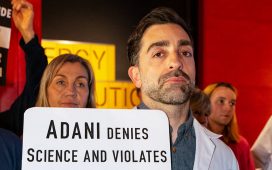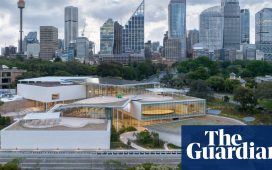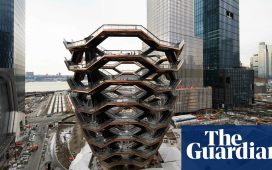The Gallery Climate Coalition will enable the sector to share resources and information in order to reduce its environmental impact
© Li-An Lim
As the London art world attempts to return to a semblance of normality it is doing so with a new awareness that economic activity can no longer be divorced from environmental considerations. “The climate emergency is the biggest issue of our times—it should be on the front page of every newspaper every day,” says the Frieze art fair co-founder Matthew Slotover. “It has the potential end to humanity within our lifetime, so it’s a pretty serious thing.”
Pre-pandemic, it was already becoming obvious to many that the old globe-trotting, carbon-emitting way of business was not sustainable and that the commercial sector was lagging way behind the public institutions, which were already taking measures to clean up their environmental act. (All organisations that are part of the Arts Council England’s National Portfolio must have their carbon footprint audited.)
This month sees the launch of the Gallery Climate Coalition (GCC), a not-for-profit founded by gallerists and art workers, including the gallerists Thomas Dane, Sadie Coles, Kate MacGarry and the Lisson director Greg Hilty, as well as Slotover, the Frieze director Victoria Siddall and (full disclosure) myself, which aims to facilitate a greener and more sustainable art world.
The GCC is voluntarily funded and open to everyone in the sector: galleries, art suppliers, art workers, institutions and, crucially, artists. The goal is for its members to collectively reduce their carbon footprint by at least 50% over the next decade, as well as to work towards near zero waste.
“The motivation for the GCC came out of a frustration that it wasn’t easy to get information and guidelines as to how you could run a small business effectively as well as being environmentally responsible,” says Dane, who had the initial idea to start the group. “There was a lack of clarity around the best action to take.” Hilty agrees that “there is a climate of opinion within the art world that recognises the urgency around climate change” but that hitherto this has been “a rather inchoate thing”.
The original plan was to organise a day-long brainstorming conference of dealers, artists, museum directors and environmentalists to take place in July at the Gloucestershire house of the gallerist Detmar Blow. But then Covid happened. Out of many Zoom conversations held during lockdown, the GCC has evolved into something larger and more long lasting. The information that Dane found so hard to source will now be available on a comprehensive website with regularly updated sections on shipping, energy consumption, packaging, travelling, energy consumption, building management, offsetting and more.
“By making certain judicial choices we can all at least halve our environmental impact.”
Lisson director Greg Hilty
Crucially, the GCC is also working to build a carbon calculator that will offer members a cheap and effective way to audit their consumption and so make concrete changes in their behaviour. This pragmatic tool will be available on the website for everyone to use. “If galleries do a carbon audit in the same way that they might do their annual accounts, then they can look and learn how to make improvements,” Dane says.
This can take many forms: the artist Gary Hume has decided that all his works will be shipped by sea not air; Frieze has switched to Green D+ biodiesel fuel for the generators at their live fairs, which cuts the total emissions by more than 60%; and MacGarry, on discovering that air travel made up nearly half her gallery’s emissions, has taken the radical decision only to do art fairs that she can reach by train and send the work by road. As Hilty says, “What’s great about this initiative is that it’s a way of pulling people together and sharing resources and information as efficiently as possible. No one is suggesting we go back to being hunter-gatherers, but by making certain judicial choices we can all at least halve our environmental impact.” It may have taken a pandemic to rally the art world, but now it seems to be uniting behind MacGarry’s heartfelt plea that “we mustn’t go back to how we were”.









